‘Whole world changed’: Mum’s terrifying diagnosis during pregnancy
After enduring seven years of infertility, Marni’s dreams were realised with a successful first round of IVF. She was shocked to discover it to be twins, but the real, devastating shock was yet to come.
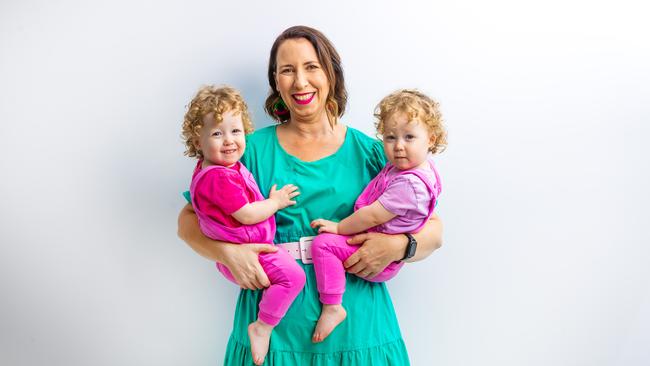
QLD News
Don't miss out on the headlines from QLD News. Followed categories will be added to My News.
Their mischievous giggles echo through the halls and their blonde curls bounce as they race across the living room in a whirlwind of double trouble.
Watching fearless and energetic twin sisters Poppy and Billie Cochrane now, it’s hard to grasp the extraordinary journey that brought them here and into the arms of their parents, Marni and Lee Cochrane.
The twins faced incredible odds when they were diagnosed with a rare condition during Marni’s pregnancy. It led Mater Centre for Maternal Fetal Medicine director Dr Glenn Gardener to perform potentially lifesaving procedures on the twins still in the womb.
A terrifying choice for any parent to make but now, with the twins almost two, Marni is overwhelmed with emotion, marvelling at their little miracles.
“It’s just incredible,” says Marni, 44, a customer service officer, and husband Lee, 41, a library assistant.
“Coming from that, where it was just so incredibly scary and I didn’t even know if they were going to survive the pregnancy, the procedures … to see them running around just so normal, so healthy … I get really, really emotional thinking about the journey and where we came from,” she says.
“I know that we did the right thing and the result is right there in front of me - how lovely they are, how active, social and happy they are. It’s just the best feeling in the world.”
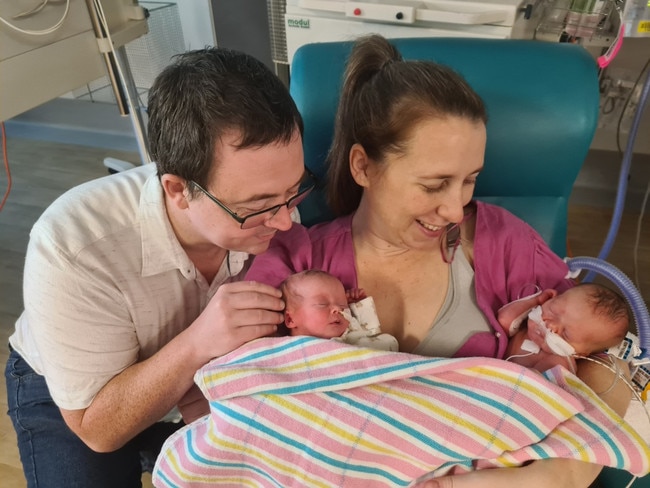
They were children the couple, who live in Merrimac on the Gold Coast, had longed for after enduring seven years of infertility. After eventually turning to IVF, they fell pregnant after their first round, then at 13 weeks, felt the shock of discovering it was twins.
But their pregnancy journey was about to take an even more unexpected – and frightening – turn.
At 21 weeks, during a prenatal ultrasound, doctors noticed a difference in the speed of blood flow in each twin.
After follow-up scans with Maternal Fetal Medicine at the Gold Coast University Hospital, Marni says at 22 weeks, the twins were diagnosed with stage 2 Twin Anaemia Polycythaemia Sequence, known as TAPS. The rare condition means blood flow is unbalanced between the twins and in severe cases it can lead to harmful impacts on their hearts and organs.
Dr Gardener explains, “If the blood flow is moving faster, there are less red blood cells because the blood is thin and watery (called anaemia) and if the blood flow is slower there are more red blood cells making it thicker and more viscous (called polycythaemia).
“In identical twins with a shared single placenta, there are often blood vessels on the surface of the placenta that connect the twins’ umbilical cords.
“Blood can flow from one twin into the other twin across these connecting blood vessels and if this is unbalanced, one twin can become anaemic (the donor twin) and the other twin becomes polycythaemic (the recipient twin).”
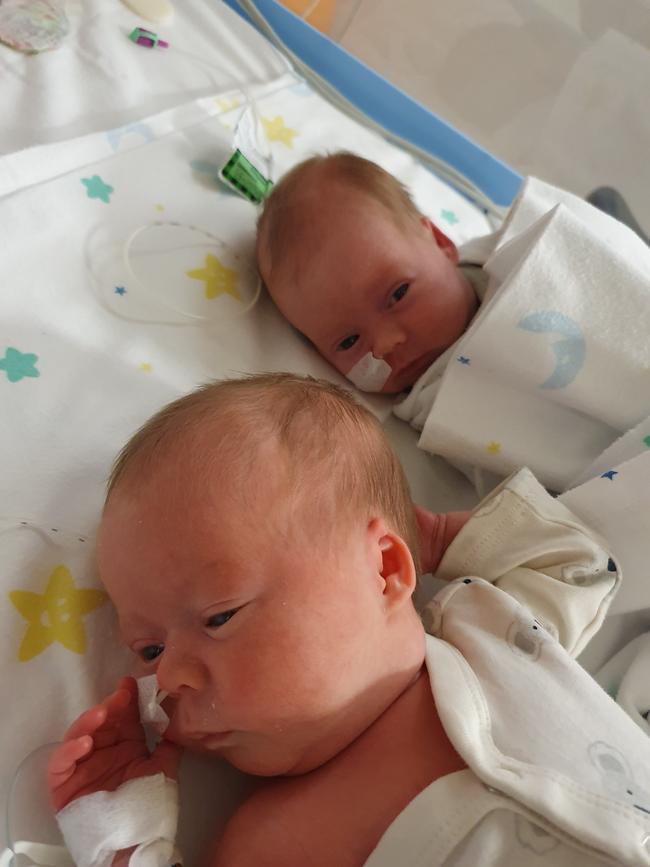
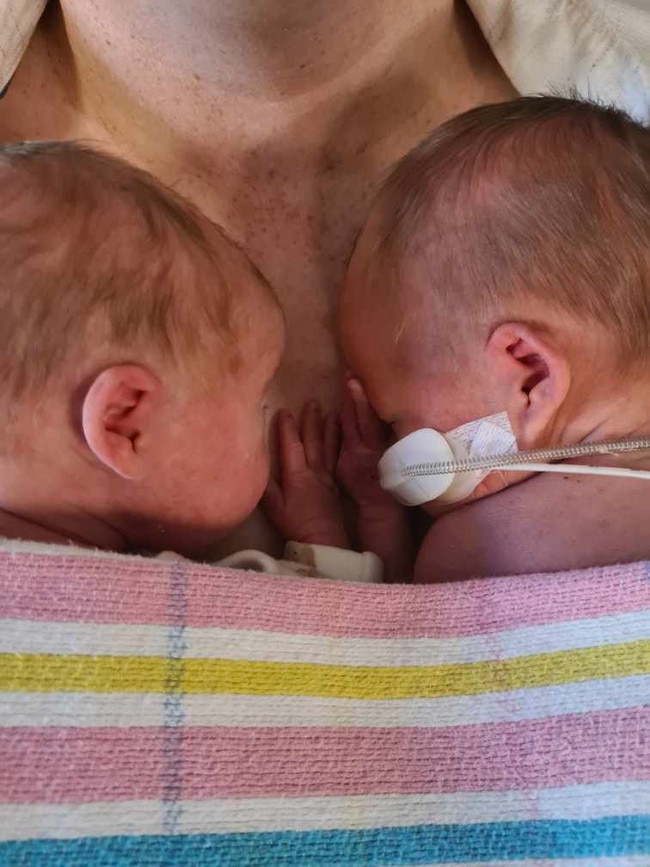
In pregnancies where identical twins share a placenta, Dr Gardener says about 5 per cent will develop TAPS, and the majority of those cases will be mild and not require fetal surgery.
“Mild TAPS does not need immediate treatment but warrants more frequent ultrasound monitoring in pregnancy to ensure that the level of anaemia in one twin and polycythaemia in the other twin does not start to cause harm such as heart failure or death in-utero,” Dr Gardener says.
For Marni, the diagnosis hit like a tidal wave.
“It’s one of those things that you never think will happen to you,” she says.
“We were expecting everything to be as perfect as the previous scans. I remember that moment so clearly, my whole world changed in that instant.”
As the weeks progressed, the twins’ condition was getting worse and they needed to act quickly.
“I had two options on the table. One was to birth the girls at 28 weeks and one was to have an in-utero transfusion,” Marni says.
“Glenn recommended an in-utero transfusion due to the risks of birthing the girls early with stage 3 TAPS.
“We essentially had to make a decision for two little helpless babies who had no voice, at this stage, they were my little girls with their own personalities and names.”
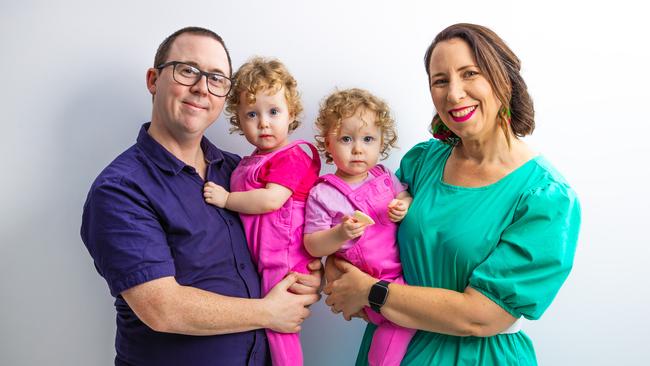
In May, 2023, when Marni was 29 weeks, and also at 32 weeks, Dr Gardener performed in-utero transfusions. As Marni lay awake, Dr Gardener placed a needle into the umbilical cord of each twin under the guide of ultrasound and begun the transfusions with painstaking precision.
“For the anaemic donor twin with heart failure, we provide a blood transfusion to normalise the blood count and improve oxygen supply (we are grateful for the blood donors who provide us with this precious blood product),” Dr Gardener says.
“For the polycythaemic recipient twin who is struggling to pump their thick blood, we remove small volumes of blood and replace it with normal saline to reduce its viscosity.”
Dr Gardener says the benefits of the procedures are extraordinary.
“The main reason to treat severe TAPS is to reduce the effects of the condition in-utero, reduce the risk of stillbirth and avoid risks of prematurity,” he says.
“Being born healthier and at a more mature gestation reduces the chance of the babies having neurodevelopmental delay, cardiac complications and other risks related to both TAPS and being born too early.”
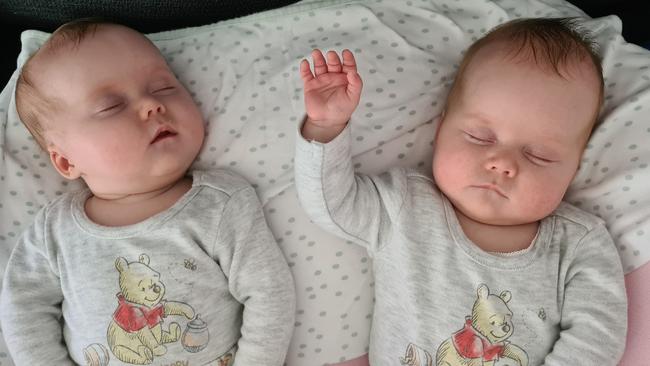
For Marni, her only focus was giving her babies a fighting chance.
“During this surgery, I felt everything, it was awful, painful and left me with bruises,” she says.
“I just kept checking the screen to make sure they were moving and their hearts were still beating. I was so incredibly scared but I just had so much hope.”
Amid the emotional period, Marni faced another heavy battle as she grieved the loss of her mother, Helen Carlsson, 76, who died from metastatic bladder cancer the same week of the twins’ diagnosis.
“That was the hardest week of my life,” Marni says.
“I’m sad she didn’t get to see me become a mother and meet the girls. She was so excited for me and to have twin grandbabies. I wish she could see their curls which are just like hers.”
On June 14, 2023, Poppy and Wilhelmina, known as Billie, were born and filled their family with hope. Despite being born six weeks early, at the Mater Mothers’ Hospital in South Brisbane, they were finally safe in their arms.
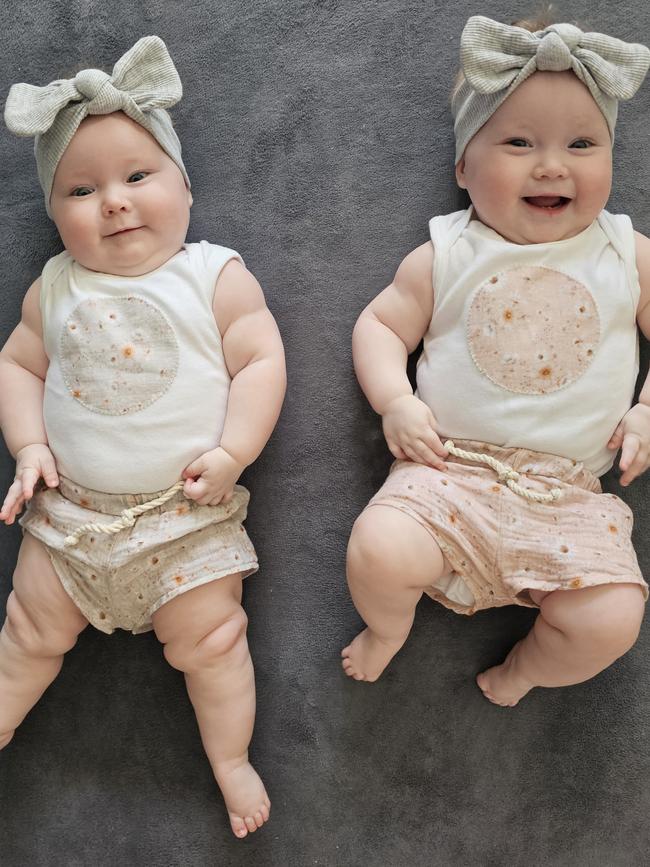
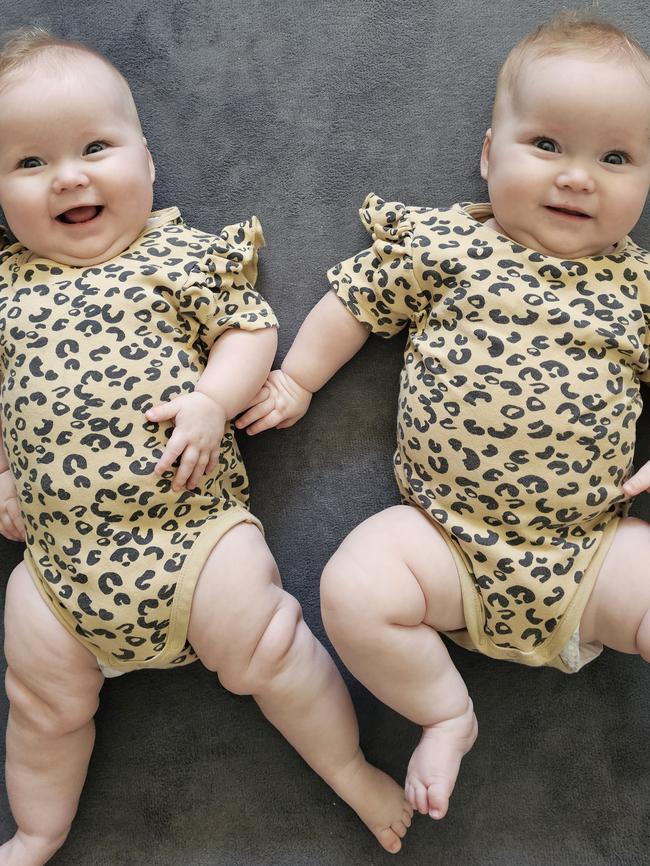
“It’s hard not to get emotional,” Marni says.
“To put it simply, I am pretty sure one or both wouldn’t be here if it weren’t for this surgery.
“But that aside, they are so healthy, without the surgery I am pretty sure we would have had more health issues. The surgery meant there were minimal interventions needed at birth and they were just treated for their prematurity.”
Marni was warned they could develop delays as they grew but now, just shy of two, she says they’re growing well.
At five months Poppy was diagnosed with a mild hearing loss, but otherwise the girls are unstoppable.
The emotion of it all hits her in the quietest of moments … when she sees a newborn on television, or sits back looking at her girls playing together. It’s holding their hands, hearing their giggles, having their joy and love fill her heart, and entire world, with a love she never thought possible. Seeing them fight for survival, and to now thrive in a world that is theirs to explore to the fullest. They were the miracles who made her wish to become a mother come true.
“It’s the deepest love I have ever known,” she says. “Being a mother has brought so much joy, love, chaos, learning and growth into my life than I ever imagined. I want to give them everything I never had and more. There is absolutely no stopping them.”
Originally published as ‘Whole world changed’: Mum’s terrifying diagnosis during pregnancy



